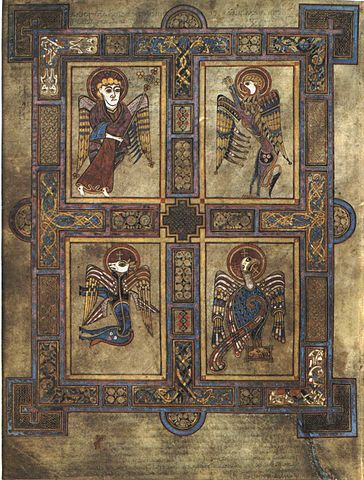The Resurgence of the Gospel, Part Four: The Reconversion of Europe
The first mission outside of Ireland was Britain, northern England and Scotland. When Patrick and his students set foot in England, the Catholic missionaries and clergy already present criticized Patrick as invading their legitimate claim to the land. Patrick vigorously responded by writing and producing his now-famous Confessions, which validated the right to mission work within England. In addition, he wrote a scorching letter to Coroticus, the English King, for enslaving Irish Christians in a raid, threatening to initiate excommunication of the king for violating Church canons against enslavement. The two documents, written in Ireland, have been preserved through the centuries and reveal a very courageous personage.
In recent years, Thomas Cahill wrote a book entitled How the Irish Saved Civilization (Doubleday, 1995), reminding many non-historians of the key role monasteries played in preserving Western culture and Christian history. When the Ostrogoths made an effective end to the Western Roman Empire in the West by taking possession of the city of Rome in the middle of the 400’s, the Church and Lactantius funneled records out of the city toward Britain and Ireland. In the Irish monasteries, those records were preserved. The literary education that Patrick encouraged at Armagh paid off for the history of the Church in the West.
The Irish monasteries reproduced themselves in the monasteries founded first at Iona, on the west coast of Scotland, by Patrick’s successor Columba (ad 521-597), and then at Lindisfarne, on the east coast. The successors of Patrick and Columba, and then of Columbanus (died circa ad 615) were a band of disciplined, mission-minded men who traveled Scotland, upper England, and over the English channel into Gaul, Belgium, the German provinces, and through much of Europe spreading the gospel and establishing centers for Christian renewal. Those in Ireland and Britain also developed a unique set of illuminated Bibles and Gospels, the most famous of which is The Book of Kells.
Besides the distinctive innovations of the Irish perigrini was the retention of the Coptic and Eastern Orthodox celebration of the Resurrection. It was argued that the Resurrection occurred during the Pascha [“Passover”]. Jesus was the Paschal lamb who was slain on a Friday and rose from the dead and on the first day of the week. However, this celebration differed from the Roman Catholic calendar even though it aligned with the Jewish Passover.
In AD 664, at Whitby Abbey in the Northumbrian area of England, a synod was held with the chief spokesman St. Wilfrid of York. There a settlement was reached about the liturgy and administration of the churches within the whole of England. Those from the north represented the Irish and Scottish missions, while those from York and the south represented the missions and church affiliations occasioned by the work of Augustine of Canterbury and others with him in and around ad 550. The discussions on the matter of determining the day of the Paschal celebration of the Resurrection dragged on for a long time before a settlement in favor of the Roman Catholic celebration. Those who favored the Eastern Orthodox-Coptic practice and who were more representative of the Scottish churches withdrew back into Scotland.
The Venerable Bede in his Ecclesiastical History of the English Church and its People, which was finished about ad 734, described the proceedings of the Council while the Anglo-Saxon Chronicle composed closer to the event makes no mention of the Council. Bede died in AD 735. Without Bede, we would know very little of the early years of the Christian faith in Britain, especially the history of the Celtic mission in Ireland, Britain, and its early missions in Europe. His accuracy cannot be questioned as is his painstaking thoroughness is self-evident as he quotes 144 different sources and had other traveling individuals to check Vatican archives for him.
Bede is one of the most influential individuals, not only in the history of Christianity in Europe, but also in biblical interpretation. He wrote commentaries on the first five books of the Old Testament the four Gospel accounts, Acts, and The Revelation. As he lay dying, he completed the translation of the Gospel of John from the Latin into English and can be considered the father of the English Bible.
Category: Church History, Spring 2019



